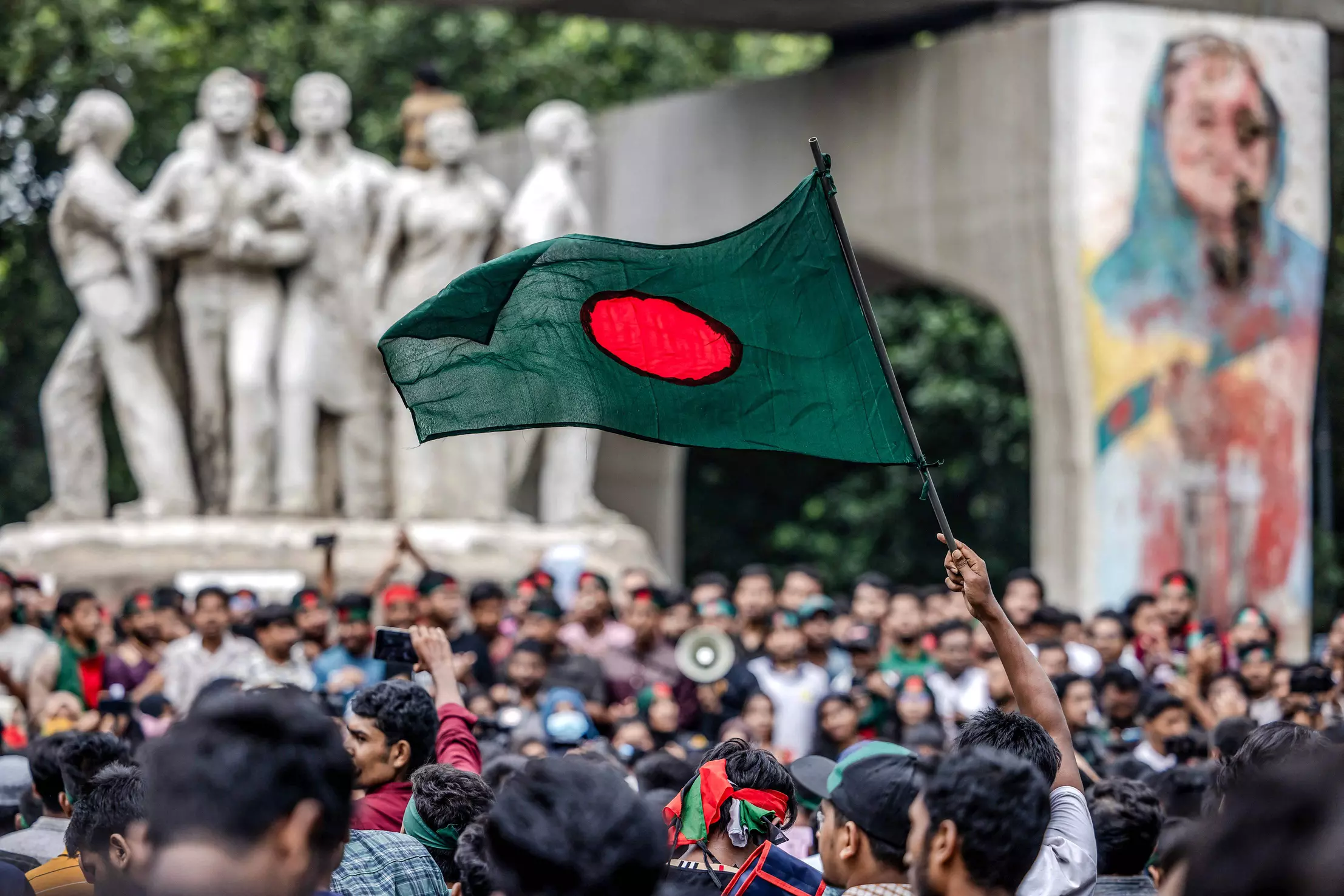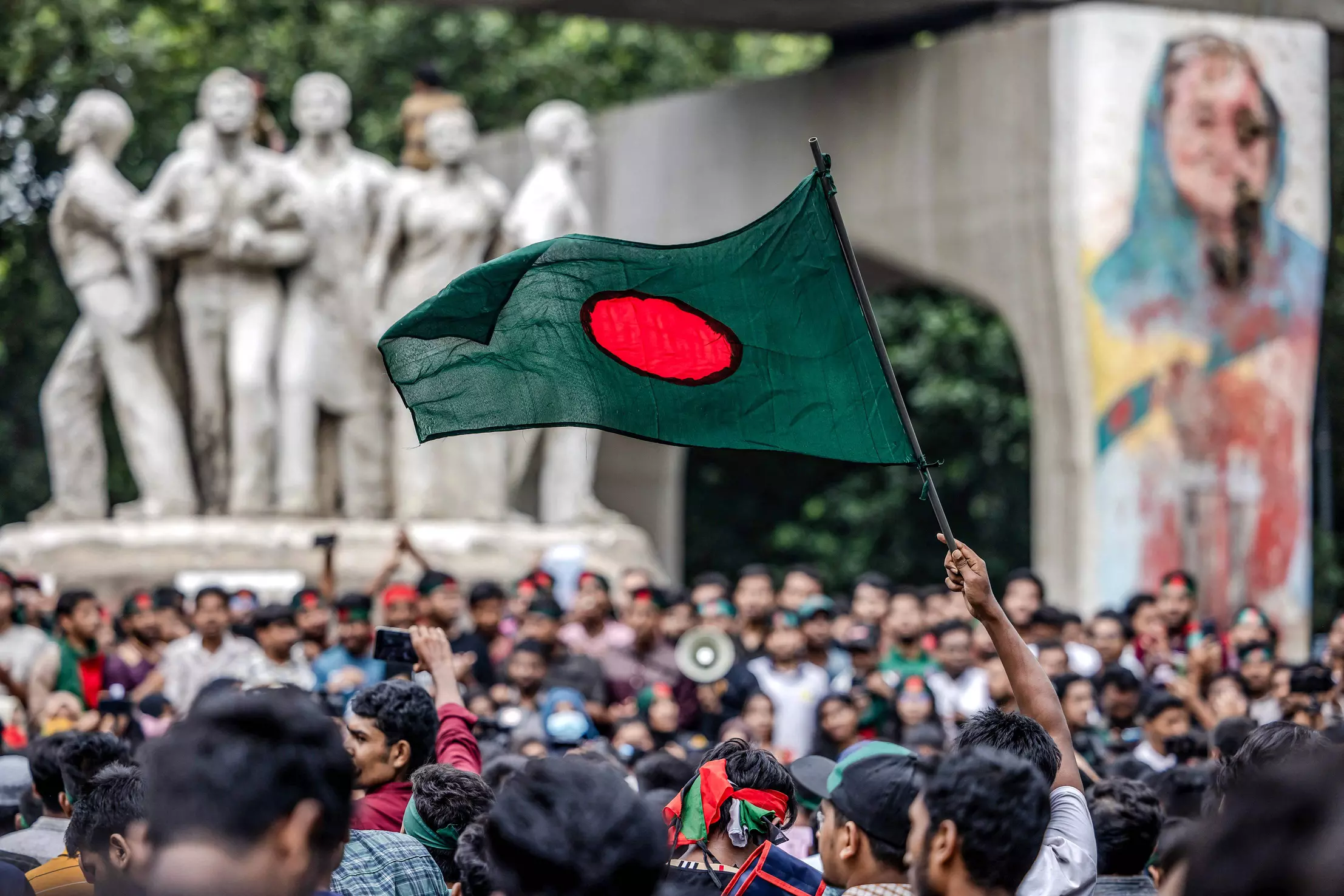
As the fleeing Sheikh Hasina Wajed chopped and changed aircraft between Ganabhaban, the Bangladesh Prime Minister’s official residence in Dhaka, and the Indian Air Force base at Hindon in Uttar Pradesh’s Ghaziabad, near Delhi, her thoughts may have turned to Lee Kuan Yew’s acerbic comment on her father “the hero who had opposed Pakistan and led East Pakistan to independence as Bangladesh … arriving in style at Ottawa in his own aircraft” for a Commonwealth summit meeting in August 1973.
Singapore makes a fetish of austerity. Many years later I remember the young secretary of the republic’s sixth President, Sellapan Ramanathan, worrying himself sick because his octogenarian boss and his wife were going to the Maldives on a state visit and would have no means of sleeping during the long and doubtless tiring flight. Singapore Airlines didn’t run to first class in those days, and business class seats could only be reclined, not converted into beds. Why not charter a flight, I asked, but the young man shook his head.
Singaporean politicians avoided extravagance.
I also recall my friend, the late Michael Richardson of the International Herald Tribune, describing how he stumbled upon Lee in shorts and sports shirt at Changi airport late one night. With only a single Gurkha in attendance, the Prime Minister was checking and re-checking the time it took a newly-installed conveyor belt to deliver baggage from the aircraft to the arrival hall. He did not want tourists to start off with a poor impression of Singapore’s facilities.
Bangabandhu was a simple man as I noted at our first meeting in a modest flat in London’s East End. A Bengali bhadralok, whether from West Bengal or Bangladesh, could not be expected to manually check luggage like Lee. But bare-bodied, a lungyi wrapped round his waist, he wanted me to tell the Statesman’s readers that he had restored Rabindra Sangeet to East Pakistan’s radio.
Lee recorded in his memoirs that Mujib’s Boeing 707 “with ‘Bangladesh’ emblazoned on it” was already parked when he landed in Ottawa in 1973. “When I left, it was still standing on the same spot, idle for eight days, getting obsolescent without earning anything.” Lee added that as he left the hotel for the airport on the last day “two huge vans were being loaded with packages for the Bangladeshi aircraft.” I am convinced 51 years later that those packages belonged to members of his entourage, not Mujib.
Lee also mentions that Mujib had sought aid for Bangladesh from the richer Commonwealth countries represented at the summit. He himself had no objection to that, although he felt that the vision of the Bangladeshi Biman 707 idling on the tarmac, frittering away precious flying hours, cannot have helped Dhaka’s cause.
No one understood PR better than Lee. “So, I made a virtue of arriving by ordinary commercial aircraft, and thus helped preserve Singapore’s Third World status”, he wrote, reminding Indian readers of Sarojini Naidu’s jibe about the cost of keeping Mahatma Gandhi in poverty. Lee went on to advise indigent Afro-Asian leaders at least to put up a show of poverty if they hoped for even sympathy, leave alone financial assistance, from richer countries. It’s an old truism that benefactors prefer the recipients of their charity to be meek about what they receive. No wonder Jawaharlal Nehru and Indira Gandhi never managed to be popular with Western leaders.
This ramble into the past may help readers understand that Bangladesh’s present is shaped by two abysmal failures. Few nations have pondered so long and so deeply on its destiny. Meeting a bare three months after Fazlul Huq’s historic Lahore Resolution of March 1940, a joint session of the Bengal Legislative Assembly decided 126-90 that if the province remained united it should join the new Constituent Assembly of Pakistan. Later, a separate meeting of West Bengal legislators decided 58-21 on partition, with West Bengal joining India’s Constituent Assembly. Another meeting of only East Bengal legislators decided 106-35 that the province should not be partitioned; and by 107-34 that East Bengal should join Pakistan if Partition proved inevitable. Sylhet decided on July 6, 1947 to secede from Assam and join East Bengal.
Meanwhile, there was of course the Muslim League’s infamous Direct Action Day (August 16, 1946) to force the pace, with many supporting killings like the notorious Noakhali massacre.
As mentioned, the failures were twofold. One impetus for the 1947 Partition was the hope that East Bengal’s long-suffering Muslim peasantry, the ryots, would escape the stranglehold of Hindu zamindars and moneylenders.
That did not happen, although zamindari abolition was one of East Pakistan’s first laws. Traditional oppressors were only replaced by a new class of white-collar officials, mainly from West Pakistan. The second failure was in 1971 when the promise of liberation was betrayed to some extent by a new class of petit bourgeoisie businessmen (some, but not all, from West Pakistan) who comprised the new elite and seemed closer to obscurantist Islamist forces behind groups like the Jamaat-e-Islami and Harkat-ul-Jihad-al Islami Bangladesh.
In spite of the commendable economic achievements under Sheikh Hasina, therefore, civil society remained unliberated. At the same time, the secular Bangladeshi leadership was under constant extremist pressure. Whether or not the Islamic State group was responsible, the turbulence between 2013 and 2016, when many secularist and atheist writers, bloggers and publishers were killed, warned that terrorism had again reared its bloody head. Fanaticism culminated in the July 1, 2016 attack by five gunmen on the Holey Artisan Cafe in Dhaka’s upmarket Gulshan district when 22 people, mostly foreigners, were killed. Now, the heads of some of Sheikh Hasina’s high-ranking supporters are beginning to roll.
Where to next? Worthy though he is, one doubts if Nobel Peace Prize-winner Muhammad Yunus can himself provide the smack of firm yet sympathetic government Bangladesh needs. If the strength is that of the military, the regime may be no different from those of Hussain Muhammad Ershad or Zia-ur Rahman, both former military dictators who ruled the country.
Meanwhile, India must be wary of reports of anti-Hindu sentiment sweeping Bangladesh’s 64 districts and of the RSS-linked Hindu Jagran Manch’s revived demand for a sliver of Bangladeshi territory to be converted into a Hindu homeland.
Never before has the danger been greater of India imagining itself as a Hindu Pakistan. What India and the entire region vitally need is secular stability, not an aggravation of religious fervour.
